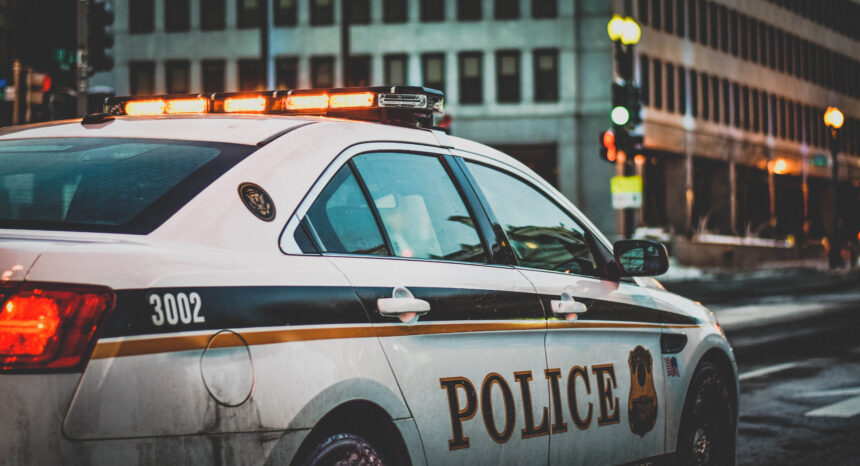A larger percentage of black drivers than white drivers are stopped by police, according to a 2013 report from the federal Bureau of Justice Statistics. A higher percentage of black drivers are searched. And black drivers are much less likely than white drivers to believe police had a legitimate reason for pulling them over.
Researchers have studied interactions between police and motorists to try to understand such disparities as well as the reasons black people are far less confident in local police than white people are. Meanwhile, the nation continues to grapple with the high-profile deaths of several black drivers shot by police in recent years. In September 2016, a black driver was fatally shot in Tulsa, Oklahoma after an officer found his vehicle parked in a street. The officer was prosecuted, and a jury acquitted her in May 2017. Also in 2016, a black driver in Minnesota was shot seven times during a traffic stop and his girlfriend broadcast the aftermath on Facebook Live. The officer involved in that shooting has been charged with second-degree manslaughter.
A new study uses body camera footage to examine differences in how police communicate with black and white drivers during traffic stops.
An academic study worth reading: “Language from Police Body Camera Footage Shows Racial Disparities in Officer Respect,” published in the Proceedings of the National Academy of Sciences of the United States of America (PNAS), June 2017.
Study summary: A group of Stanford University researchers sought to determine whether there are differences in the way police officers speak to black people and white people during routine traffic stops. The team, comprised of scholars from the university’s linguistics, psychology and computer science departments, analyzed transcripts from 183 hours of body camera footage taken by police officers in Oakland, California in April 2014. (Oakland is a racially diverse city, where about 40 percent of residents are white and more than 30 percent are black.) The authors examined the language and phrases used by officers during 981 traffic stops, 682 of which involved black drivers and 299 of which involved white drivers.
Key findings:
- Police officers spoke less respectfully to black people than to white people during traffic stops. Officers were more likely to use informal titles with black drivers and formal titles with white drivers.
- White drivers were 57 percent more likely to hear a police officer use phrases that were considered the most respectful — apologies, for example, and expressions of gratitude such as “thank you.”
- Black drivers were 61 percent more likely to hear officers use language considered to be the least respectful, including commands for drivers to keep their hands on their steering wheels.
- Disparities remained even after the researchers controlled for the race of the police officer, the severity of the offense for which a driver was stopped and the location of the traffic stop.
- Officers tended to use more formal language when interacting with older drivers and women.
- Officers tended to use less respectful language with all drivers while performing searches.
Other resources:
- The National Conference of State Legislatures tracks legislation on body cameras and provides a searchable database of state laws on body cameras. As of April 2017, five states — California, Florida, South Carolina, Nevada and Connecticut — require at least some law enforcement officers to wear body cameras.
- The vast majority of law enforcement agencies in the United States plan to use body cameras or are already experimenting with them, according to a 2015 joint report from the Major County Sheriffs of America, the Major Cities Chiefs Association and the U.S. Department of Homeland Security.
- The American Civil Liberties Union has spoken out against proposals to limit the public’s access to officers’ body camera footage.
- The Leadership Conference on Civil and Human Rights, a coalition of civil and human rights organizations, created a scorecard to evaluate the body camera policies in place at 50 major police departments nationwide.
- The federal Bureau of Justice Statistics gathers data on traffic stops and surveys U.S. residents every several years about their experiences with police.
Related research:
- A 2016 study published in Criminal Justice and Behavior, “’Contagious Accountability’: A Global Multi-site Randomized Controlled Trial on the Effect of Police Body-Worn Cameras on Citizens’ Complaints Against the Police,” suggests body cameras help reduce citizen complaints against police.
- A 2015 study in the Journal of Experimental Criminology, “The Impact of On-officer Video Cameras on Police-Citizen Contacts: Findings from a Controlled Experiment in Mesa, AZ,” found that officers who did not wear body cameras conducted more “stop-and-frisks” and made more arrests than officers who wore cameras.
- A 2014 report from the U.S. Department of Justice, “Police Officer Body-Worn Cameras: Assessing the Evidence,” offers a review of research on the costs and benefits of body cameras.


Expert Commentary